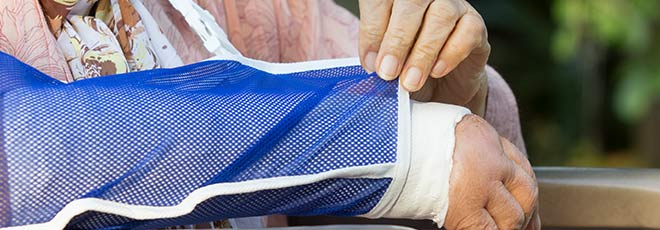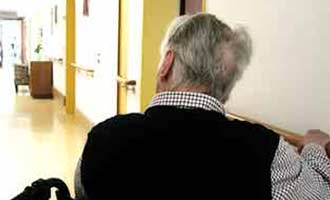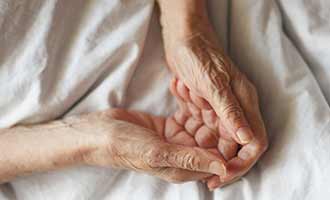
When we help our loved ones choose a nursing home, we all hope to help them choose a new home. By home, we don’t mean just a place to live, but a place to enjoy life. Since nursing homes are often understaffed and nursing home residents are often defenseless, abuse happens. If you see signs of nursing home abuse, it is important to seek legal counsel immediately in order to preserve evidence and to be sure that the abuse ends and your loved one can be properly treated. Our experienced lawyers, here at d’Oliveira & Associates, are prepared to help if a loved one has suffered nursing home abuse.
What Are The Main Types of Nursing Home Abuse?
1. Physical Abuse

Physical abuse comes in the form of slapping, pushing, punching, bruising, shaking, or sexual abuse. Other forms of physical abuse include unreasonable restraint, being forced to stay in one’s room, not giving appropriate medication, giving too much medication, deprivation of food, water, bathing assistance, or toileting assistance. There is no explanation for this type of unfortunate and cruel behavior, but the sad truth is that it does occur.
2. Emotional Abuse
Emotional abuse includes causing humiliation, fear, anger, sadness, helplessness, and the like. Recently, nursing home employees have been fired and sued for posting lewd pictures of residents unbeknownst to them, on various social media channels.
3. Neglect
 Neglect occurs when someone’s basic needs are not met such as medical attention, food, clothing, shelter, bathing, toileting, and the like. Whether it is intentional neglect or mere negligence, a nursing home resident relies on that facility to assist them in every aspect their everyday lives.
Neglect occurs when someone’s basic needs are not met such as medical attention, food, clothing, shelter, bathing, toileting, and the like. Whether it is intentional neglect or mere negligence, a nursing home resident relies on that facility to assist them in every aspect their everyday lives.
4. Financial Abuse
Financial abuse occurs when someone’s personal property is taken or they are forced or tricked into signing legal or financial documents. These residents are usually elderly and of diminished mental capacity, making them vulnerable to this type of attack.
How Can I Detect Nursing Home Abuse On a Loved One?
- Bruises, skin tears, bed sores, broken bones, cuts, or any other injuries anywhere on the body
- Cuts, bleeding, and/or bruising in the genital area
- Any injury requiring emergency medical attention or hospitalization
- Any broken bone, especially hips
- Any injury or death occurring during or immediately after a loved one has been left unattended, such as when someone wanders outside
- Sudden withdrawal or depression
- Heavy medication or sedation
- Fast weight gain or fast weight loss
- Seeking isolation from others, even loved ones
- Threatening, insulting, or frightening family members and friends
- Unusual behavior such as sucking, biting, or rocking
- Extreme agitation or upset
- Missing personal property or money
- Fear
- Dirty conditions
- Failure to prevent infections, bed sores, dehydration, and malnutrition
- Frequent illnesses not reported to medical doctors

Who Can I Call If I Think A Loved One May Be a Victim of Nursing Home Abuse?
 The Law Offices of d’Oliveira & Associates are prepared to help if your loved one has suffered nursing home abuse. We understand the anger and frustration you feel and we know how to work within the legal system to fight for your loved one’s rights. If your loved one has suffered nursing home abuse, he or she may be able to receive financial compensation. If any of the previous information raises red flags regarding a loved one you may have in a nursing home, do not hesitate to contact a lawyer who can help you. For a free (no-obligation) case consultation, call us toll-free at 1-800-992-6878 or fill out a contact form online.
The Law Offices of d’Oliveira & Associates are prepared to help if your loved one has suffered nursing home abuse. We understand the anger and frustration you feel and we know how to work within the legal system to fight for your loved one’s rights. If your loved one has suffered nursing home abuse, he or she may be able to receive financial compensation. If any of the previous information raises red flags regarding a loved one you may have in a nursing home, do not hesitate to contact a lawyer who can help you. For a free (no-obligation) case consultation, call us toll-free at 1-800-992-6878 or fill out a contact form online.


